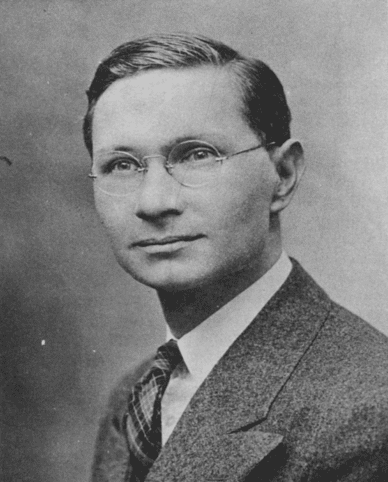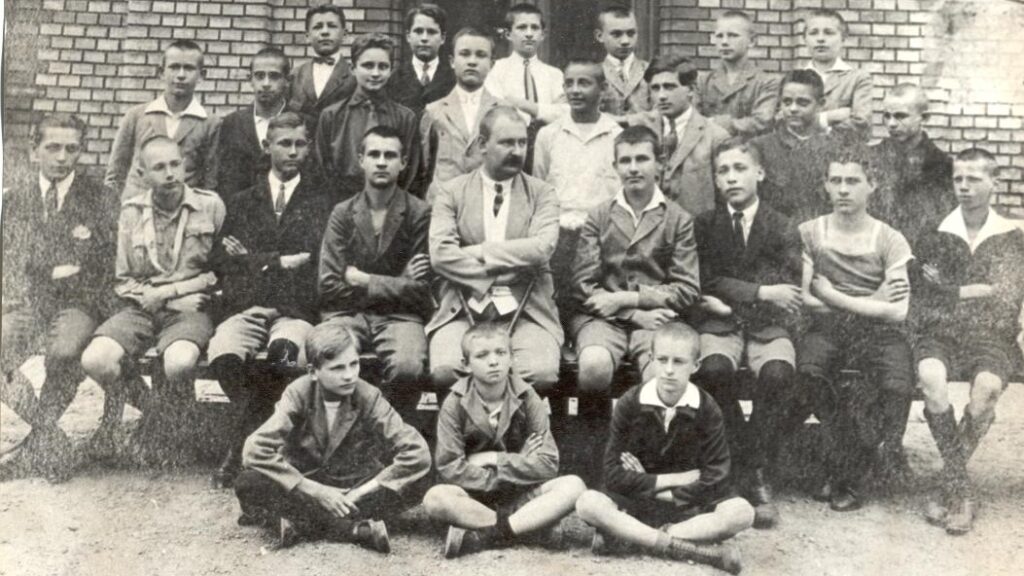What approach should Christians take to modern politics? What are their obligations in contemporary public life? Which Christian values should be endorsed in modern democracy and which political instruments are permitted while doing so? Several Christian philosophers, theologians, and politicians have in the past sought to provide answers to these crucial questions. Our series of articles intends to rekindle interest in those authors, firstly because we believe that these authors receive less attention than they deserve, and without forgetting the extensive academic literature on them (since most of them attract serious scholarly interest) we argue that their ideas are underrepresented in public discourse. Secondly, we believe that to answer the questions raised above, one should be able to study acknowledged theologians and philosophers who are well-versed in the wisdom of the Christian faith and base their political arguments on it. Consequently, the political insights of modern theologians will be presented with a special focus on the Christian origins and sources of their ideas. We hope that these articles will increase public interest in these inspiring figures.
Our article series have already elaborated on several Catholic and Protestant authors, including Abraham Kuyper, Reinhold Niebuhr, Joseph Ratzinger, Johann Baptist Metz, Ernst-Wolfgang Böckenförde, Helmut Richard Niebuhr, Walter Rauschenbusch, and Erik Peterson.
A less acknowledged, but still exceptionally wise and guiding scholar will be introduced, namely John Coleman Bennett (1902–1995). Bennett has usually been remembered as a close colleague and friend of Reinhold Niebuhr. Both protestant theologians and political activists worked at the Union Theological Seminary. They were members of the Fellowship of Socialist Christians and the founders of the influential journal Christianity and Crisis..[i] Furthermore, Bennett shared many of Niebuhr’s insights; in short, they were in the “same camp” that wished to find Christian ethical answers on a realistic ground to contemporary political problems, for instance, the question of pacifism in the Second World War. Also, Bennett was the first occupant of Reinhold Niebuhr Professorship of Social Ethics at the Union.
Bennett was the first occupant of Reinhold Niebuhr Professorship of Social Ethics at the Union
What is occasionally left out of the elaboration on Bennett, or at least less investigated, is that he wrote a book on Christian realism. His book, entitled “surprisingly” as Christian Realism,[ii] was published in 1941, an effort of systematisation that Niebuhr, who is treated as the leading figure of Christian realism, never did.[iii] Bennett’s book summarises the trends of world politics and Church dynamics while stressing the possibility and responsibility of Christian political and social action. Yet, the whole argumentation has its theological foundation with a particular view on God, human nature and God’s role in history. Although the book’s tone was affected by a disillusionment experienced in the political and theological spheres mainly due to the world events, it is mixed with hope and optimism. This article aims to illustrate some of Bennett’s critical ideas on politics and social ethics based on his book.
The term ‘Christian Realism’naturally requires a clarification. Regarding realism, Bennett writes that ‘the primary reference of the word “Realism” in the title is to the conviction pervading the book that Christianity avoids the illusions of both the optimists and the pessimists. I believe that the liberal optimism of the past generation and the theologians who deduce their view of human possibilities from a dogma of original sin which goes beyond the evidence are both wrong’.[iv] This distinction clarifies that realism can be conceptualized as a position against something, the extreme form of optimism and pessimism, or in other words, sentimentalism and cynicism. The second meaning that Bennett gives, highlights the different emphasis of realism and idealism in philosophical discussions: the first focuses on the given aspects, while the second is ‘most impressed by the contribution of the mind to experience.’[v]
While realism is defined explicitly, Christianity is not. Nevertheless, several crutches could lead us to understand Bennett’s theological perspective. He helps us in this effort when he plainly rejects ‘post-Kantian idealism that represents the pride of autonomous reason’.[vi] At the same time, he does not associate himself with neo-orthodoxy or the great theological opponents of idealism who were influenced by Karl Barth or Karl Marx like Emil Brunner or John Macmurray.[vii] He defines himself as a ‘liberal who tries to take the contribution of such thinkers as Barth, Brunner and Reinhold Niebuhr seriously.’[viii] Bennett is also deeply ecumenical, a strain that could be found throughout the whole book. He favours empirically attentive American theology over the abstract European one, though he acknowledges that the latter was wiser in understanding the depths of sin and tragedy in human life.[ix] The pragmatism of Bennett does not overshadow his Bible-centeredness and the aim to take the insights of certain theologians seriously. He names Paul, Augustine, Aquinas and Luther[x] and probably it is not accidental that these four theologians are called either Christian realists or their antecedents.
But what can we learn from Bennett and his Christian realist perspective? Three themes will be mentioned here: (i) the wise balance of Christian thought, (ii) the nature of Christian responsibility, and (iii) the limits of Christian politics.
Bennett argues that there are two core Christian assumptions regarding human nature: man is made in the image of God, and man is a fallen Creature
Bennett’s inclination to balance between opposites is striking. Christian realism is already a kind of balancing, but Bennett sees this balancing capability as a crucial characteristic of Christianity itself. Probably the most important “problem” in this regard is related to the question of human nature. Bennett argues that there are two core Christian assumptions regarding human nature: man is made in the image of God, and man is a fallen Creature. A sensitive balance should be kept by stressing both elements without overemphasizing them. Dangerous intellectual errors, biased political programmes, and harmful social consequences are expected if this permanent contrast (or, in Brunner’s words, contradiction) in human life is not understood well. For instance, focusing only on the uniqueness of humanity (without keeping in mind that God is the Creator) leads to self-righteousness, while counting solely on human sinfulness wastes human creativity.
In Bennett’s perspective, the tendency towards egoism ‘is probably the chief root of all the evil that comes into the world through human action,’ and we are all inclined to ‘look at the world from the point of view of your own interests or of the social interests that are closest to ourselves’[xi]. Yet, we are free,[xii] and we strive for completeness, which can only be satisfied in being in union with the Highest. Even the so-called pessimist authors, such as Paul and Augustine, believed that ‘men by the grace of God can become new creatures’, writes Bennett.[xiii] In short, the theologian thinks that the Christian conception of human nature is best for his time since it blends realism with a ground for hope.[xiv]
Bennett also discusses the inherent wisdom of Christianity that can adequately balance between individualism and collectivism. Truth is prior to the individual human beings, the prophets defended the rights of individuals against authority, immortality and the doctrine of election is also usually understood in a personalistic framework. Still, there is not just a room but a necessity for responsibility towards our neighbours. ‘The emphasis upon the responsibility of the individual to the community as a fellowship of persons is a commonplace of the Christian ethics. Without such responsibility Christian love is meaningless’, writes Bennett.[xv] Even though he contradicts many claims of the Social Gospel movement (for instance, that God’s Kingdom should or could be realized on Earth), he treats some ideas as imperatives. Let us point to two here related to Christian social responsibilities.
First, he highlights the necessity of social responsibilities which stem from Christian love. However, these are not meant to be individual acts of charity but radical modifications in the social organization. Bennett believed in changing the institutions based on equality, or at least he deemed a more equal justice in distribution necessary. Compared to the possibilities in Biblical times, humanity has reached a level where it can abolish poverty.[xvi] Later, he also writes that Christians (largely middle-class Christians) should give the benefit of the doubt to the lower classes while, for the sake of reaching an objective, they organize themselves politically or make labour unions.[xvii] This indicates the socialist thread of Bennett’s thought.
The second thought Bennett accentuates is the significance of repentance, not just in a personal sense but in social (or economic) relationships as well. In the modern world, several human groups (nations, classes, sub-classes, etc.) are in constant conflict, and our minds are controlled by the group we belong to. Bennett calls for clear sight from Christians to be aware of these facts that cloud our minds based on our interests. He argues: ‘When the opinions that are based upon interest are echoed by what seems to be the opinion of the community, partial interests become disguised as patriotism. The Christian should live under influences which enable him to cut through these false fronts. Until we do so our repentance will not correspond with our real situation.’[xviii]
In the modern world, several human groups (nations, classes, sub-classes, etc.) are in constant conflict, and our minds are controlled by the group we belong to
These ambitions might seem grandiose, idealistic or even naïve in a way. Still, it should be noted that in several parts of the book Bennett highlights the limits of Christian politics. When he elaborates on the nature of social hope, he underlines that social responsibility is relative to the degree of power and freedom.[xix] Before that—in the light of the war—it seems that he would have been content with achieving modest aims such as solving the problem of living together without destroying each other.[xx] Later, he enlists three common situations (conflictual arguments of the experts, uncertain behavioural consequences of policies, and the problem of choosing between two tragic evils) where Christian thought does not have a clear-cut answer.[xxi] This also proves Bennett’s realistic instinct. Nevertheless, Bennett is an incurable Christian. For him, social responsibility stems from obedience to the will of God.[xxii] Yet, at the same time, the responsibility of Christians towards God stands above everything. No human group can identify itself with the will of God.[xxiii] This idea could save us from political messianism.
[i] Encyclopedia, John Coleman Bennett, Encyclopedia.com, (last update: May 11 2018), https://www.encyclopedia.com/people/history/historians-miscellaneous-biographies/john-coleman-bennett, accessed 13 April 2022.
[ii] John Coleman Bennett, Christian Realism (New York: Charles Scribner’s Sons, 1941)
[iii] For instance, Niebuhr’s intention was to influence theological and political thought and action not to systemize his own thought. A short but vivid illustration of the grounds of Christian realism by Niebuhr could be found in the introduction of his book Christian Realism and Political Problems published in 1953, which again, is not a monograph but a collection of essays.
[iv]Bennett, Christian Realism, x.
[v] Bennett, Christian Realism, xi.
[vi] Bennett, Christian Realism, xi.
[vii] Bennett, Christian Realism, xi.
[viii] Bennett, Christian Realism, ix.
[ix] Bennett, Christian Realism, 18.
[x] Bennett, Christian Realism, 20.
[xi] Bennett, Christian Realism, 57.
[xii] Another crucial element is the God-given freedom of human beings. Bennett writes: ‘Man is a responsible being called by God to free obedience but capable of resisting the call’. Bennett, Christian Realism, 52.
[xiii] Bennett, Christian Realism, 53.
[xiv] Bennett, Christian Realism, 65.
[xv] Bennett, Christian Realism, 61.
[xvi] Bennett, Christian Realism, 81.
[xvii] Bennett, Christian Realism, 114.
[xviii] Bennett, Christian Realism, 83-84.
[xix] Bennett, Christian Realism, 71.
[xx] Bennett, Christian Realism, 71.
[xxi] Bennett, Christian Realism, 70.
[xxii] Bennett, Christian Realism, 70.
[xxiii] Bennett, Christian Realism, 63.








